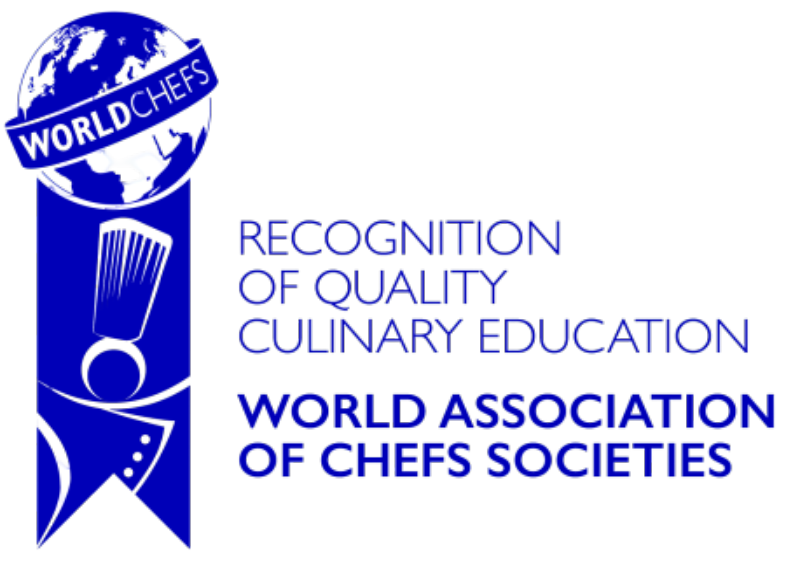Academic Period Definition #
DIG follows a quarterly academic system offering 4 quarters annually; Winter, Spring, Summer, and Fall.
Academic Credit Hour Definition #
Credit hour determination is defined below and used by Detroit Institute of Gastronomy to establish the value of educational hours per 12-week quarter. Quarterly credit hours are equivalent to the commonly accepted and traditionally defined units of academic measurement. Online distance education lecture courses (LC) are measured by the learning outcomes normally achieved through 30 hours of student work for one (1) quarter credit. However, for OJL field experience such as student apprenticeship OJL training, a student earns 6 credits for the quarter for successfully completing 60 hours of academic engagement and a minimum of 360 hours of field experience employment. A minimum of 480 OJL field experience hours per quarter is recommended to reach 4000 hours and on-time graduation. All student OJL work is documented in the curricula materials and syllabi, including a reasonable approximation of time required for students to complete the assignments. Evaluation of the student’s academic achievement is identified as a grading criterion and weighted appropriately in the determination of a final course grade.
LC classes – 1 credit = 10 hrs. (10 online academic engagement + 20 preparation hrs.)
OJL classes – 1 credit = 10 hrs. (10 online academic engagement + 80 field experience hrs.)
OJL IND class – 1 credit = 10 hrs. (10 online academic engagement + 480 field experience hrs.)
Credit Value and Course Type Description #
Online Distance Education/Lecture Courses (LC) – Hybrid courses are divided into weekly units. These courses engage the learner through lecture, reading and activities. They include instructor-assessed assignments and work and culminate in a final exam assessment of knowledge retention.
| Course Type | Credit Unit Value | Online Class Academic Engagement Hours per Quarter | Online Class Preparation Hours per Quarter |
| Lecture/Online | 3 | 30 | 60 |
Online Distance Education/On the Job Training Courses (OJL) – Working with the place of employment, these hybrid courses include online learning tied to required competency on-the-job training tasks which are to be completed by the student and assessed by the instructor. Knowledge is delivered through course activities, reading and hands-on practical application. The hybrid approach measures the individual learner’s skill acquisition through a combination of field experience and the successful demonstration of competency as described in the defined knowledge sections established in these culinary standards. The weekly OJL field experience schedule is determined by the Place of Employment (POE) and can vary from week-to-week. A minimum of 480 OJL field experience hours per quarter is recommended for on-time graduation.
| Course Type | Credit Unit Value | OJL Online Academic Engagement Hours per Quarter | OJL Field Experience Hours per Quarter |
| On the Job training/online instruction | 6 | 60 | 480 |
Independent Study/On the Job Training Courses (IND OJL) – This OJL course provides the student with additional hands-on-working experience allowing them to learn and demonstrate their skills in a live kitchen environment under the direct supervision of the sponsoring food service operation and course instructor. Guidance and supervision are the key to a successful apprenticeship. This interactive course builds on the student’s live practical application of culinary skills while working to meet the U.S. DOL OJL 4000 minimum apprenticeship hours of on-the-job training required for graduation.
| Course Type | Credit Unit Value | OJL Online Academic Engagement Hours per Quarter | OJL Field Experience Hours per Quarter |
| Independent Study/On the Job training | 1 | 10 | 480 |
General Assignment and Assessment Information
Specific course assignments and assessments are outlined within each course syllabus. Assignments and assessments in a course are determined by your instructor and can include:
Written Assignments
Reading Assignments
Quizzes and Exams
Discussion Board Assignments
Exams
Projects
Cooking Assessments OJL Skills Assessments
Prerequisite and Co-Requisite Definitions #
The course prerequisite(s) identifies classes that require successful completion prior to the class being attempted. Co-requisite(s) identifies classes that require successful completion prior to the course being attempted or concurrent enrollment in both classes.
Class Load #
A student registered for 12 or more quarter hours of credit is classified by DIG as a full-time student. Students may not register for more than 18 quarter credit hours in any given quarter without approval from the Executive Director of Hospitality.
Grading Scale #
Transcript Letter Description Points
A 90.00 – 100% 4.00
B 80.00 – 89.99% 3.00
C 70.00 – 79.99% 2.00
D 60.00 – 69.99% 1.00
F 00.00 – 59.99% 0.00
WD Withdraw
INC Incomplete
RPL Recognition of Prior Learning
Grade Point Average #
The overall cumulative grade point average (CGPA) is calculated based on all credit courses taken at Detroit Institute of Gastronomy. CGPA is calculated by:
- multiplying the credits for each course by the grade points associated with the grade earned
- totaling the points earned for all courses
- dividing the total points by the total number of credits attempted.
The assigned values for the grades are referenced in the Grading Scale.
In calculating an overall cumulative CGPA, credit hours from courses receiving the following grades are not included: RPL, INC, WD. To be a student in good standing, you must maintain a grade point average of 2.0 or higher. Generally, a student must have a grade point average of 3.0 or higher to be eligible for scholarships or scholastic honors.





